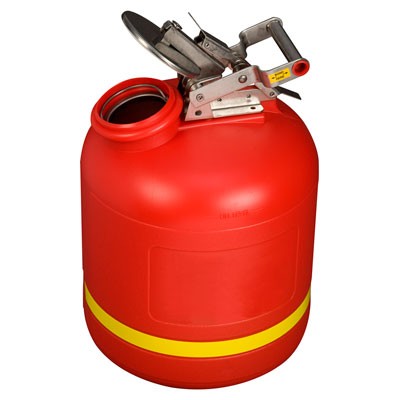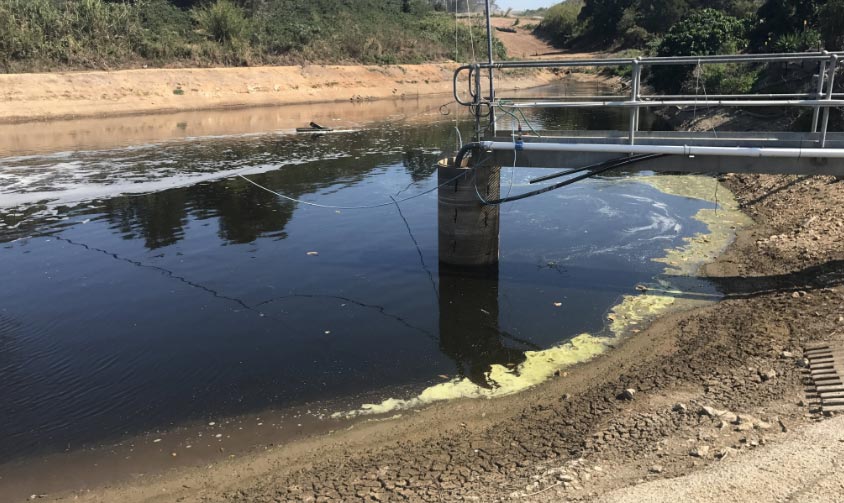Leading Industrial Wastewater Treatment Solutions: Making Certain Compliance and Effectiveness
Leading Industrial Wastewater Treatment Solutions: Making Certain Compliance and Effectiveness
Blog Article
Comprehending the Comprehensive Process of Liquid Garbage Disposal: Finest Practices and Environmental Influence Considerations
The administration of liquid waste disposal is a diverse issue that calls for a detailed understanding of numerous ideal methods and their linked environmental effects. From the types of fluid waste created to the approaches used for collection, treatment, and final disposal, each action plays a crucial role in guarding ecological communities and public wellness. As governing requirements develop and technology breakthroughs, the conversation around these processes comes to be significantly important. What ramifications do these changes hold for future sustainability efforts, and how can stakeholders make sure that they are effectively resolved?
Kinds Of Liquid Waste
Recognizing the different sorts of fluid waste is important for reliable management and disposal methods. Liquid waste can be generally categorized into numerous types, each needing one-of-a-kind handling and treatment methods.
Industrial fluid waste frequently consists of unsafe materials, consisting of heavy metals, solvents, and chemicals, generated during making processes. These wastes necessitate stringent governing compliance to secure human wellness and the setting. Domestic liquid waste mostly describes wastewater created from homes, consisting of sewer and greywater, which, although less toxic, can still position considerable threats if improperly taken care of.
Agricultural liquid waste, consisting of drainage from ranches, frequently includes plant foods and chemicals that can bring about ecological destruction if not treated effectively. Clinical fluid waste, created from healthcare facilities, consists of polluted fluids such as physical fluids and chemicals, requiring specialized disposal methods to protect against infection and environmental contamination.
Lastly, oil and grease waste, typically produced by restaurants and automotive markets, can cause serious obstructions in sewer systems otherwise managed properly. Understanding these categories facilitates targeted techniques for treatment, compliance with laws, and reliable disposal approaches, inevitably advertising environmental sustainability and public wellness safety and security.

Collection Methods
Reliable collection techniques are important for the appropriate monitoring of fluid waste, ensuring that it is gathered safely and successfully before treatment or disposal. Numerous methods are employed depending upon the kind of fluid waste generated, the quantity, and the particular attributes of the waste.
One common method is using devoted collection storage tanks or sumps, which are developed to record liquid waste at the resource. These systems frequently include pumps that help with the transfer of waste to bigger storage containers or therapy facilities. Additionally, mobile collection devices equipped with vacuum modern technology are employed in scenarios where waste is generated periodically or in hard-to-reach areas.
For commercial settings, closed-loop systems can properly minimize leakages and spills, enabling the healing and reuse of fluid waste. It is also vital to train personnel on proper collection procedures to minimize threats connected with harmful materials.
Furthermore, executing regular upkeep timetables for collection tools ensures optimum performance and security. The combination of sophisticated surveillance systems can improve collection effectiveness by providing real-time information on waste levels and possible risks. In general, efficient collection techniques are fundamental to sustainable fluid waste monitoring techniques.
Therapy Processes
Therapy processes play a crucial duty in the monitoring of fluid waste, changing possibly unsafe materials right into multiple-use sources or risk-free effluents - liquid waste disposal. These processes can be extensively classified right into physical, chemical, and organic methods, each customized to attend to certain pollutants present Bonuses in the waste stream
Physical therapy approaches, such as sedimentation and filtering, work by getting rid of suspended solids and particulate issue. These strategies are often the primary step in the treatment chain, effectively lowering the lots on succeeding processes. Chemical therapies entail the usage of reagents to counteract dangerous substances, speed up heavy metals, or oxidize natural toxins, therefore enhancing the safety and you can look here security of the effluent.
Biological treatment procedures, including triggered sludge systems and anaerobic food digestion, take advantage of the all-natural capabilities of microorganisms to degrade organic issue. These approaches are specifically effective for wastewater containing naturally degradable toxins. Advanced therapy modern technologies, such as membrane filtering and progressed oxidation processes, are significantly used to accomplish higher levels of purification.
Including a mix of these treatment approaches not only makes sure conformity with regulatory standards yet likewise advertises ecological sustainability by recovering beneficial sources from fluid waste.
Disposal Options
Just how can organizations make sure the risk-free and accountable disposal of liquid waste? Efficient disposal choices are essential for protecting public wellness and the setting. The key methods include land disposal, treatment, and incineration adhered to by discharge right into municipal wastewater systems.
Land disposal involves the mindful control of liquid waste in marked garbage dumps, making sure that it does not seep right into bordering dirt or water. Incineration, on the other hand, subjects liquid waste to heats, converting it into ash and gases, which require correct purification to lessen exhausts. This technique is ideal for hazardous wastes that can not be dealt with via typical methods.
In cases where liquid waste can be dealt with, companies may decide for organic or chemical treatment processes to neutralize damaging parts before discharging the dealt with effluent right into local systems. This path normally lines up with regulatory needs, ensuring that the effluent fulfills security standards.
Inevitably, companies have to carry out complete evaluations of each disposal option to establish its stability, taking into consideration elements such as waste make-up, regulative conformity, and potential dangers to health and the setting. By choosing suitable disposal approaches, companies can add to an accountable waste management method.
Environmental Impact
The environmental effect of fluid waste disposal is an essential consideration for organizations looking for to minimize their eco-friendly browse around this web-site impact. Additionally, the discharge of neglected or inadequately dealt with waste into surface waters can result in eutrophication, leading to oxygen depletion and the succeeding fatality of fish and various other organisms.

To reduce these effects, companies have to take on finest techniques such as implementing extensive waste therapy procedures, promoting recycling and reuse, and adhering to governing requirements. By taking a positive technique to fluid waste administration, entities can significantly decrease their ecological footprint while sustaining sustainable advancement objectives. Inevitably, a detailed understanding of the ecological influences connected with fluid waste disposal is necessary for informed decision-making and liable stewardship of all-natural resources.
Verdict
Effective monitoring of fluid waste is crucial for guarding ecological integrity and public health. By embracing best methods in collection, disposal, and treatment, along with adherence to governing requirements, the capacity for dangerous contamination of environments can be dramatically minimized. Continual developments in technology and procedures add to lasting waste monitoring initiatives. Ultimately, a comprehensive understanding of liquid garbage disposal not only minimizes ecological effects however additionally fosters a dedication to responsible resource management and environmental stewardship.
The monitoring of liquid waste disposal is a diverse concern that needs a complete understanding of various best practices and their linked ecological impacts. From the kinds of fluid waste created to the techniques employed for collection, treatment, and final disposal, each step plays a crucial role in protecting environments and public health and wellness.The environmental impact of fluid waste disposal is an important consideration for companies seeking to decrease their ecological impact. Ultimately, a thorough understanding of the ecological effects associated with liquid waste disposal is important for notified decision-making and liable stewardship of all-natural resources.
Ultimately, an extensive understanding of liquid waste disposal not just minimizes ecological influences however likewise fosters a dedication to liable resource management and environmental stewardship.
Report this page